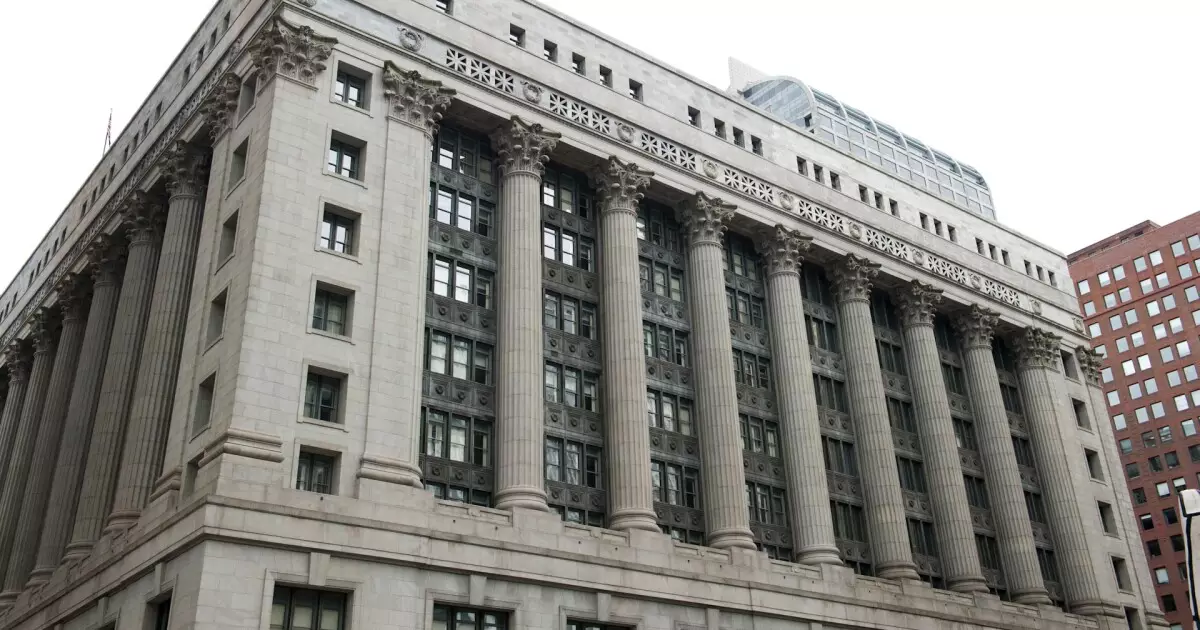In a significant political showdown, the Chicago City Council has firmly rejected Mayor Brandon Johnson’s proposed budget for 2025, notably turning down a contentious $300 million property tax increase. This move came as the city grappled with a daunting budget gap of approximately $982 million. The vote reflected an urgent and collective dismissal of the mayor’s financial strategy, characterized by a lack of public deliberation and a swift unanimous decision against the tax hike. An absence of negotiation may suggest growing tensions and a fractious relationship between the city’s legislative body and the mayor’s office.
The rejection was underscored by a critical financial assessment, which saw the Kroll Bond Rating Agency placing Chicago’s general obligation bond rating on a watch for downgrade. This warning serves as an ominous backdrop to the recent budget conflicts, indicating a potential loss of faith in the city’s fiscal health. Kroll’s Senior Director, Linda Vanderperre, emphasized the necessity for a consensus between the administration and the City Council, aiming for more coherent solutions by the end of 2024. The pressure is mounting for local leaders to address the budget challenges head-on while ensuring that Chicago’s financial stability does not erode further.
Mayor Johnson’s situation has been precarious since assuming office, especially regarding fiscal strategies. He had previously signaled a commitment to not raising property taxes, which complicates his current predicament. With the Council rejecting the proposed increase, a significant question looms over how Johnson intends to mobilize political support to close the budget gap. Analysts are critical of his approach, with Howard Cure from Evercore Wealth Management stressing that the Council must recognize the necessity of revenue generation through increased property taxes. It appears that the mayor’s political capital is being tested to its limits.
Cure candidly notes that the focus on property tax increases may be misdirected. Instead, the overarching issue of unfunded pension payments poses a more immediate threat to the city’s financial health. The mayor’s budget includes a mix of 80% structural solutions and some reliance on one-time fixes that, while aimed at mitigating the budget shortfalls, highlight the city’s recurring reliance on economically sensitive revenue streams. It raises concerns about the city’s long-term financial planning and its ability to adapt to ongoing fiscal pressures.
In light of the City Council’s decisive rejection of the tax increase, discussions surrounding alternative revenue avenues have gained momentum. The Civic Federation of Chicago has proactively listed a range of potential solutions; identifying a service tax, income tax, or even a commuter tax as reasonable alternatives to bolster the city’s finances. Nevertheless, many of these suggestions hinge on modifications to existing state laws, reflecting the complex interplay between municipal and state governance that often stymies effective fiscal maneuvering.
Aside from long-term measures, several short-term solutions have been suggested. These include adjusting garbage collection fees, altering liquor taxes, and reinstating the employer’s expense tax. Nonetheless, implementing these changes swiftly is critical, particularly as the city navigates the impending expiration of federal pandemic relief funds. Any prospective strategies the administration considers will need to be executed with consideration of both immediate revenue needs and the long-range impact on services to the community.
Beyond the immediate fiscal crisis, the implications of the City Council’s decision resonate through various sectors of municipal governance. From public health to law enforcement, the repercussions of budget cuts pose risks not only to staffing levels but also to the quality of city services. With the Chicago Police Department already under scrutiny due to a federal consent decree, Mayor Johnson’s proposals to cut resources in this area could lead to significant tension and challenge the city’s compliance with necessary reforms. The ongoing staffing shortages in public health, for instance, reveal the vulnerabilities that result from tight fiscal constraints, making it ever more challenging for the city to attract and retain qualified personnel.
The specter of state budget deficits further complicates the picture. With Illinois grappling with a $3 billion shortfall, there are fears that state-level fiscal pressures could trickle down to Chicago, resulting in a lack of support from the state when it is most needed. The interplay between state and city finances will require strategic navigation to ensure that local governance is not disenfranchised during these turbulent economic times.
The budgetary impasse represents a critical moment for Chicago, encapsulating broader challenges faced by urban centers across the country. Mayor Johnson and the City Council must strategize collaboratively to navigate the complexities of fiscal recovery and governance, as they weigh the necessity of generating revenue against the imperative of maintaining essential city services. The ongoing discourse and resolution of budget issues will likely define Chicago’s political and economic landscape for years to come, making it essential for leaders to prioritize constructive dialogue and effective policy-making moving forward.


Leave a Reply